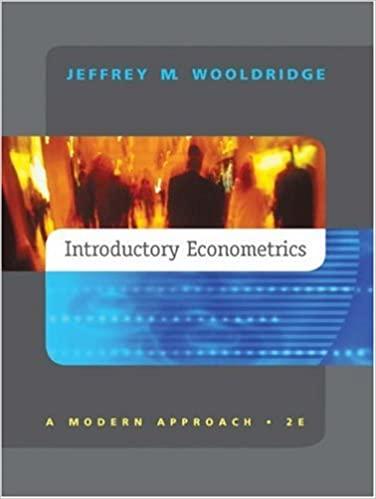Question
Consider an economy populated by a representative consumer, that has preferences over leisure (l) and consumption (c). The consumer's utility function is described as u(c,
Consider an economy populated by a representative consumer, that has preferences over leisure (l) and consumption (c). The consumer's utility function is described as u(c, l) = 1 3 ln(c) + 2 3 ln(l) The consumer has 24 units of time available to spend between leisure and work. His income from work is 6 and he earns dividends worth 18 from holding shares in a firm. There are no lump-sum taxes initially. (a) Describe the consumer's problem, and write his budget constraint explicitly. (b) The consumer currently works for 4 units of his total time. Is this an optimal work-leisure decision? (c) What should happen to each of his leisure, labor supply and consumption for him to make an optimal decision? (d) Find the general form of individual's optimal decisions c and l in terms of w, , h, and T? (e) What is this consumer's individual labour supply in terms of w, , h and T? (f) Assume the government decides to tax the individual, by imposing a lump sum tax of T = 8. Explain, in words, the effect on the consumer's labor supply in terms of Income effect and Substitution effect.
Step by Step Solution
There are 3 Steps involved in it
Step: 1

Get Instant Access to Expert-Tailored Solutions
See step-by-step solutions with expert insights and AI powered tools for academic success
Step: 2

Step: 3

Ace Your Homework with AI
Get the answers you need in no time with our AI-driven, step-by-step assistance
Get Started


